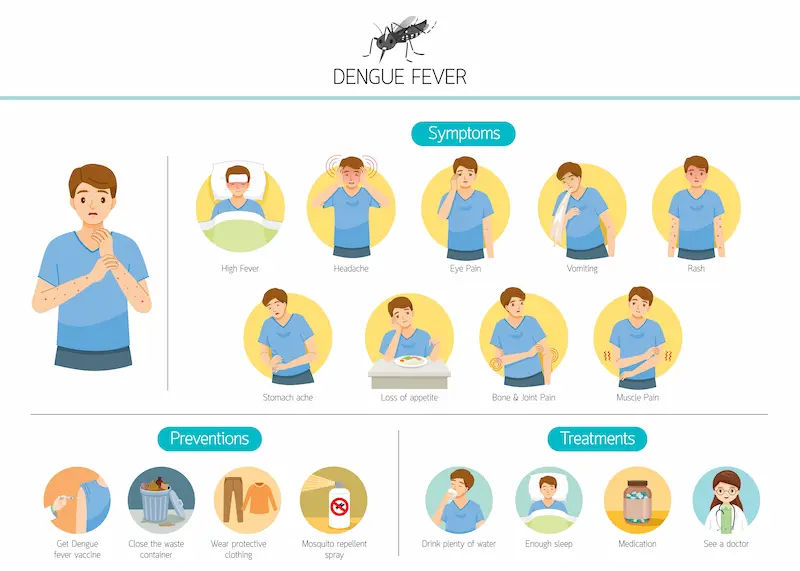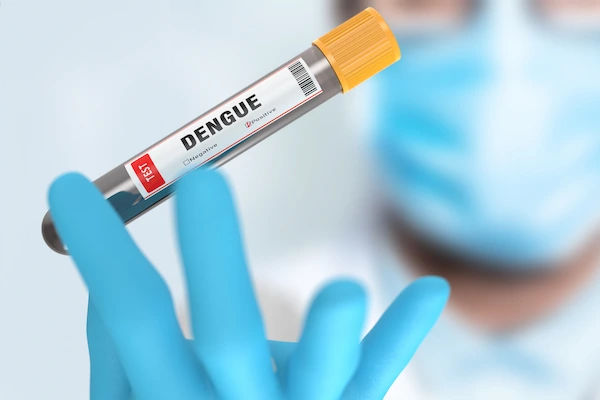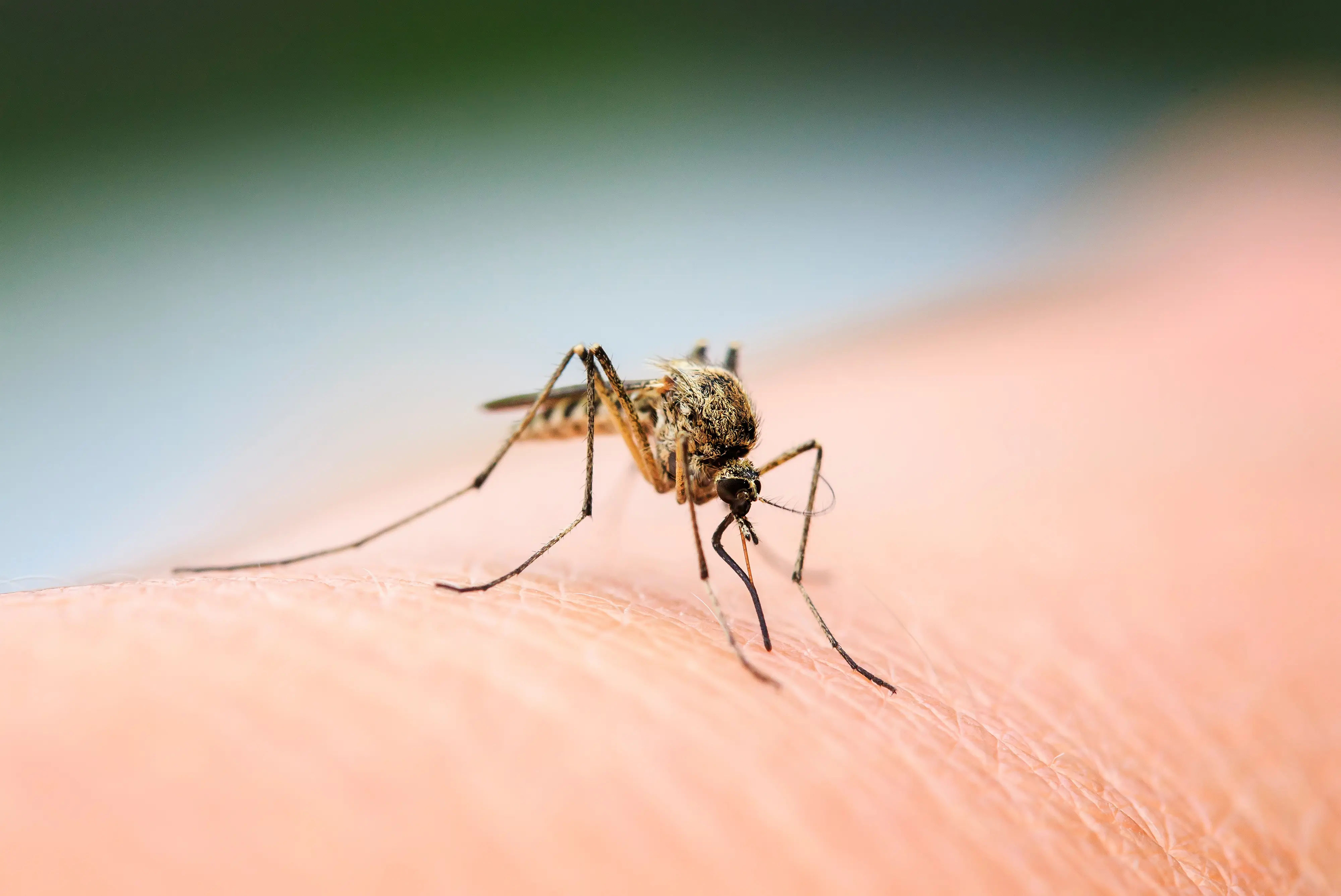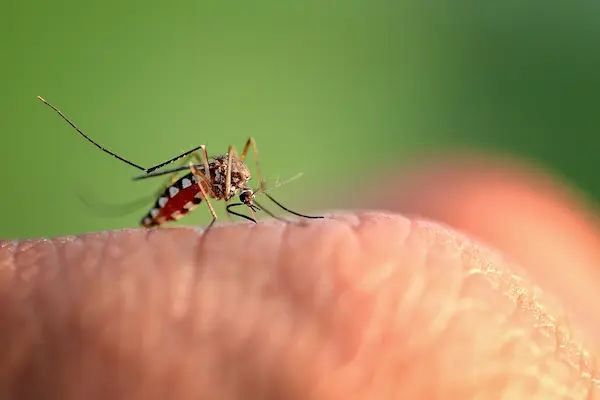Dengue Fever: Symptoms, Treatment, and Prevention Guide
Know about dengue fever, what it is, how it spreads, diagnosis, symptoms, signs, treatment options and more.

Written by Dr. Shaik Abdul Kalam
Reviewed by Dr. Vasanthasree Nair MBBS
Last updated on 13th Jan, 2026

Introduction
Dengue fever is a mosquito-borne viral infection that poses a significant public health threat in tropical and subtropical regions around the world, including many parts of India. Often called "breakbone fever" due to the severe muscle and joint pain it causes, dengue affects millions annually. For most, dengue causes a high fever and flu-like symptoms, but for some, it can develop into a severe, life-threatening illness requiring immediate medical attention. This comprehensive guide will walk you through everything you need to know about dengue fever, from identifying the first signs and understanding treatment options to implementing effective dengue prevention strategies to keep you and your family safe.
What is Dengue Fever?
Dengue fever is an illness caused by infection with one of four closely related dengue viruses (DENV-1, DENV-2, DENV-3, and DENV-4). These viruses are part of the Flaviviridae family. When a person recovers from an infection, they develop lifelong immunity against that specific serotype. However, subsequent infections by different serotypes increase the risk of developing severe dengue.
The global incidence of dengue fever has grown dramatically in recent decades. According to the World Health Organisation (WHO), about half of the world's population is now at risk, with an estimated 100-400 million infections occurring each year. It's not just a rural problem; urban and semi-urban areas are hotspots for transmission.
Consult Top Specialists for Personalised Tips
The Dengue Virus and Its Serotypes
The existence of four distinct serotypes is a key reason why dengue is so challenging to control. Exposure to one serotype provides immunity only to that one. A later infection with a different serotype can lead to more severe disease due to a phenomenon called antibody-dependent enhancement (ADE), where antibodies from the first infection can inadvertently help the new virus infect more cells.
How Does Dengue Spread? Understanding the Transmission
Dengue cannot be spread directly from one person to another like a cold or the flu. The transmission cycle requires a human and a mosquito.
The Role of the Aedes Mosquito
The primary vector for dengue is the Aedes aegypti mosquito. This mosquito is easily identifiable by the white bands on its legs. Unlike other mosquitoes that bite at night, the Aedes mosquito is a daytime feeder, with peak activity periods in the early morning and just before dusk. It typically breeds in clean, stagnant water commonly found in urban environments—water collected in flower pots, discarded tyres, water storage containers, and clogged drainpipes are prime breeding grounds.
The cycle begins when a mosquito bites a person infected with the dengue virus. The virus then replicates inside the mosquito for 8-12 days (the extrinsic incubation period). After this period, the mosquito can transmit the virus to other humans for the rest of its life through its bite.
Can Dengue Be Spread Directly From Person to Person?
No, you cannot catch dengue fever through casual contact, coughing, sneezing, or sharing food with an infected person. The only established modes of transmission are through the bite of an infected mosquito. In rare cases, transmission can occur via blood transfusion, organ transplant, or from a pregnant mother to her fetus.
Recognising the Signs: Symptoms of Dengue Fever
Symptoms usually appear 4-10 days after being bitten by an infected mosquito and can last for 2-7 days. The presentation can range from asymptomatic to severe.
Common Dengue Symptoms
Sudden High Fever: A fever as high as 104°F (40°C) is a hallmark sign.
Severe Headache: Often described as pain behind the eyes.
Muscle, Bone, and Joint Pain: This is the source of the "breakbone fever" nickname.
Nausea and Vomiting
Pain Behind the Eyes
Swollen Glands
Rash: A skin rash may appear a few days after the fever starts.
Warning Signs of Severe Dengue (Dengue Hemorrhagic Fever)
After the initial fever declines, usually after 3-7 days, warning signs of severe dengue can appear. This is a medical emergency. If you or a family member experiences any of the following, seek immediate medical attention:
Severe Abdominal Pain: Persistent pain and tenderness.
Persistent Vomiting: Vomiting multiple times in 24 hours.
Bleeding: Bleeding from the gums or nose, blood in vomit or stool.
Rapid Breathing: Difficulty breathing.
Fatigue and Restlessness: Extreme tiredness or irritability.
Clinical Fluid Accumulation
How is Dengue Fever Diagnosed?
Diagnosing dengue fever based on symptoms alone can be difficult, as they mimic other illnesses like malaria, chikungunya, and typhoid. Therefore, laboratory confirmation is essential.
Types of Diagnostic Blood Tests
NS1 Antigen Test: This test detects the presence of the dengue virus itself and is most effective within the first 5-7 days of illness.
PCR (Polymerase Chain Reaction) Test: Similar to NS1, it detects the virus's genetic material early in the infection.
Serology Tests (IgM and IgG): These tests detect antibodies produced by the body in response to the infection. IgM antibodies become detectable after 3-5 days, while IgG antibodies appear later and can remain for life.
A complete blood count (CBC) is also crucial to monitor platelet count and hematocrit levels, which are key indicators for severe dengue. If you suspect dengue, consult a doctor online with Apollo24|7 to get advice on which tests are right for you and to facilitate home collection services for an accurate and convenient diagnosis.
Dengue Fever Treatment: Managing the Illness
There is no specific antiviral medication to cure dengue. Treatment is supportive and focuses on managing symptoms and preventing complications.
Home Care and Relief for Mild Dengue
Rest: Your body needs energy to fight the virus.
Hydration: Drink plenty of fluids like water, oral rehydration solutions (ORS), and coconut water to prevent dehydration from fever and vomiting.
Pain and Fever Management: Use analgesics like paracetamol (acetaminophen) to control fever and relieve pain.
Medications to Use and Avoid
USE: Paracetamol (Acetaminophen) is the preferred drug for pain and fever.
AVOID: Non-steroidal anti-inflammatory drugs (NSAIDs) like Ibuprofen, Aspirin, and Naproxen. These can increase the risk of bleeding and complications like Reyes Syndrome, which is especially dangerous in children.
Hospital Treatment for Severe Dengue
For severe cases, hospitalisation is necessary. Treatment involves:
Intravenous (IV) Fluid Hydration: To maintain fluid volume and electrolyte balance.
Blood Transfusion: In cases of severe bleeding, to replace lost blood and platelets.
Close Monitoring: Continuous monitoring of vital signs, platelet count, and hematocrit.
The Critical Phase: Understanding Dengue Complications
The most critical period in a dengue infection is often when the fever subsides, typically around days 3-7 of illness. This is known as the critical phase. During this time, plasma leakage can occur, where blood fluid leaks through small blood vessels into the chest and abdominal cavity. This can lead to:
Dengue Hemorrhagic Fever (DHF): Characterised by high fever, damage to lymph and blood vessels, bleeding, and liver enlargement.
Dengue Shock Syndrome (DSS): A dangerous drop in blood pressure that can lead to shock and death if not treated promptly.
Close medical supervision during this phase is vital to manage these potential dengue complications.
Protecting Yourself: Dengue Prevention Strategies
Prevention is undoubtedly the best strategy against dengue fever. Since it is spread by mosquitoes, control focuses on avoiding bites and eliminating breeding grounds.
Mosquito Control at Home and in Your Community
Eliminate Breeding Sites: Regularly empty, clean, or cover containers that hold water (pots, buckets, drums, tyres).
Secure Water Storage: Ensure water storage containers are tightly covered.
Dispose of Garbage Properly: Remove discarded containers and junk that can collect rainwater.
Use Mosquito Nets and Screens: Especially for infants and young children, even during daytime naps.
Using Personal Mosquito Repellents Effectively
Apply EPA-registered repellents containing DEET, Picaridin, or Oil of Lemon Eucalyptus on exposed skin and clothing.
Wear protective clothing: Long-sleeved shirts, long pants, socks, and shoes.
Use mosquito coils and vaporisers indoors.
The Dengue Vaccine: What You Need to Know
A vaccine for dengue is available in some countries but is recommended only for individuals with a confirmed prior dengue infection. It is not currently a tool for widespread prevention in naive populations. Consult your doctor to see if it's a suitable option for you or your family.
Conclusion
Dengue fever is a serious and widespread illness, but it is also largely preventable and manageable with the right knowledge and timely action. Understanding the symptoms, knowing the critical warning signs, and adopting rigorous preventive measures are the pillars of protecting yourself and your loved ones. Remember, while most cases can be managed at home with rest and careful hydration, the transition to severe dengue is a medical emergency. Do not hesitate to seek professional help if warning signs appear.
Consult Top Specialists for Personalised Tips

Dr. Rajib Ghose
General Physician/ Internal Medicine Specialist
25 Years • MBBS
East Midnapore
VIVEKANANDA SEBA SADAN, East Midnapore

Dr P Jagadeesha Chandra
General Physician/ Internal Medicine Specialist
37 Years • MBBS, MD
Bengaluru
Apollo Hospitals Jayanagar, Bengaluru

Dr. Ashmitha Padma
General Physician/ Internal Medicine Specialist
5 Years • MBBS, MD Internal Medicine
Bengaluru
Apollo Hospitals Jayanagar, Bengaluru

Dr. Aakash Garg
Gastroenterology/gi Medicine Specialist
12 Years • MBBS, DNB (Medicine), DrNB (Gastroentrology).
Bilaspur
Apollo Hospitals Seepat Road, Bilaspur
(150+ Patients)

Dr. Ajay K Sinha
General Physician/ Internal Medicine Specialist
30 Years • MD, Internal Medicine
Delhi
Apollo Hospitals Indraprastha, Delhi
(200+ Patients)
More articles from Dengue fever
Frequently Asked Questions
What is the typical dengue fever recovery time?
Most people with mild dengue start feeling better after a week, but full recovery, including the fatigue and weakness, can take several weeks.
How can I increase my platelet count in dengue naturally?
While no food can drastically increase platelets, a healthy diet rich in nutrients like folate (leafy greens), vitamin B12 (eggs, dairy), and vitamin C (citrus fruits) supports bone marrow health and overall recovery. The primary treatment for low platelets is medical supervision and, if severe, transfusion.
Can you get dengue more than once?
Yes. There are four dengue virus serotypes. Recovery from one provides lifelong immunity only to that specific serotype. A second infection with a different serotype carries a higher risk of severe dengue.
What is the difference between dengue and malaria?
Both cause fever, but they are caused by different pathogens (dengue virus vs. malaria parasite) and are transmitted by different mosquitoes (Aedes for dengue, Anopheles for malaria). Dengue often features severe muscle pain and a rash, which are less common in malaria.
Is dengue contagious from person to person?
No, it is not directly contagious. It requires a mosquito vector to transfer the virus from an infected person to a healthy one.




